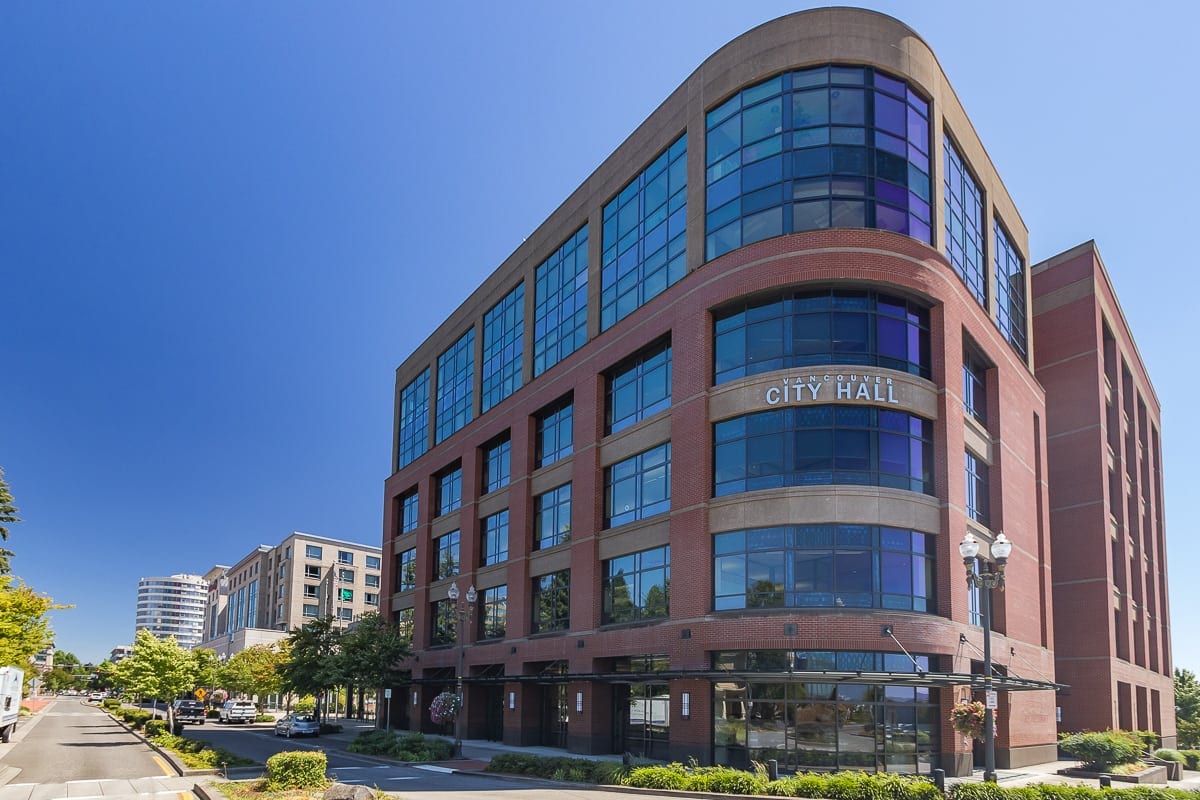The council members sought alternatives after a proposed business head tax angered local nonprofits
VANCOUVER — It appears the city of Vancouver is listening to the concerns of area nonprofits and changing up the way it plans to raise $6.1 million per year to hire 42 new police officers and 19 civilian police department employees.
The council is currently seeking a new funding model, after it was determined the one adopted in February of last year would have been too costly to implement.
“When we are supposed to be the fiduciary stewards of taxpayer dollars, we need to make sure that we’re spending that money responsibly,” said Councilor Alishia Topper during a work session on Monday, “and when it costs a quarter of a million dollars to collect taxes, we are not doing our job.”
The original funding plan included a 3.4 percent utility tax increase, an additional $20 business license fee, and an Indoor Space Business License Surcharge (BLS) per square foot of retail, industrial, and commercial space, and per unit fee for landlords. Without changes, that funding model will take effect at the beginning of next year.
Earlier this year Vancouver Strong, an advisory group looking into developing a sustainable funding plan for the city, recommended a new plan to raise the money. It would create a head tax on all businesses inside the city, and would have implemented the same tax on 501c(3) nonprofits with four or more employees. It also includes a four percent utility tax increase, phased in over two years, which is expected to bring in an additional $2.39 million next year, and $2 million in 2020.
City staff later recommended phasing out the 400 employee cap on the BLS over two years, and putting a 20 employee cap on the fee for nonprofits.
Many nonprofits showed up at a meeting on Aug. 27 to tell the council how they would be impacted. That led council members to direct city staff to work on alternatives, which were presented at the work session on Monday.
Council Member Ty Stober said he would like to see the cap on nonprofits raised higher, to make sure organizations such as PeaceHealth Southwest pay their fair share.
“Our legal department is very uncomfortable raising the exemption to more than 20, because even at the level of 20 employees or above, we have only 27 organizations that would be subject to paying the tax,” responded Natasha Ramras, the city’s chief financial officer. “The higher the threshold, the lower the number of companies that would be subject to paying the license surcharge, thus creating an issue for the city with targeting, perhaps, certain organizations, and that’s not allowed by law.”
Most of the council members expressed support for a new option, which would eliminate the employee head tax for nonprofits in favor of a base $200 per year business license fee. Nonprofits with gross receipts of less than $12,000 annually would be exempted.
Mayor Anne McEnerny-Ogle said that amounts to about $17 per month. “I would expect all of those nonprofits when they have their fundraiser to go and raise the paddle of ‘who will pay our business license fee’,” she said, “and Terry and I would be happy to make sure that happens.”

Councilor Linda Glover, who is executive director for the nonprofit Gifts For Our Community, said she’s aware that choosing this option still would represent a burden for some nonprofits.
“Every time you take a number and you move it one place, and you follow it down to the payer, it is a burden to someone,” said Glover. “So then you move the number someplace else, and ‘oh, it burdens that group or that sector.'”
The plan city council seemed most in favor of would still keep the four percent utility tax hike, but Ramras says that would add up around $88 per month for the average household in Vancouver. An $11 per month increase by 2020, but still well below the $203 per month that people are paying in Portland.
The two-year struggle over how to raise just over six million dollars illustrates a serious challenge facing the city of Vancouver.
“We have many other services that are below standard,” noted Topped. “Our parks are struggling, we have deferred maintenance in the hundreds of millions of dollars. So this is the very first step.”
Mayor McEnerny-Ogle said going with the base business fee on nonprofits accomplishes the goal of spreading out the burden, while having the least amount of expenditure from the city’s general fund budget.
The updated proposal will come before Vancouver City Council for a first hearing Sept. 24, with an anticipated public hearing the following week.




